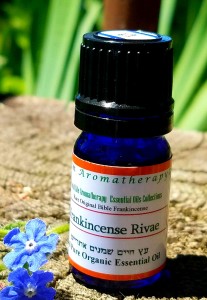Essential oils have been used for thousands of years for their therapeutic and healing properties as part of the practice of aromatherapy. Essential oils are sourced from leaves, stems, or roots of plants that are known for their health properties.
So, what is frankincense?
Frankincense, sometimes referred to as olibanum, is a common type of essential oil used in aromatherapy that can offer a variety of health benefits: helping to relieve chronic stress and anxiety, reducing pain and inflammation, boosting immunity, and even fighting cancer.
Frankincense essential oil is sourced from the resin of the Boswellia carterii or Boswellia sacara tree that is commonly grown in Somalia. This tree is different from many others in that it can grow with very little soil in dry and desolate conditions.
What Is Frankincense Essential Oil Used For?
Frankincense oil is used by either inhaling the oil or absorbing it through the skin, usually mixed with a carrier oil such as an unscented lotion or jojoba oil. It is believed that the oil will transmit messages to the limbic system of the brain which is known to influence the nervous system.
Different species, different effects
In the Werz’s study, researchers compared the anti-inflammatory effects of the resin of several different kinds of frankincense.
The most well-known and widely-used species of Boswellia Caterri Yemen Oman and the Boswellia serrata from Northern and central India.
However says Professor Werz of his study, “We were able to show that the resin of the Boswellia papyrifera and rivae is ten times more potent”. These species mostly occurs in the Northeast of Africa (Ethiopia, Somalia) and on the Arabian Peninsula (Yemen, Oman). Take note that boswella rivae was the tree that grew in Israel and the most important ancient production facilities of this oil was found east of Bethlehem at the oasis of Ein Gedi on the shore of the Dead Sea. The Song of Songs mentions the fragrance of the perfumed trees growing at Ein Gedi, which was known as “Arugot Habosem”.
It is believed by many Bible Scholars that this maybe the rare frankincense trees that grew in Israel and now is being revived by KIBBUTZ KETURA, ISRAEL – Seven years after her success in sprouting a 2,000 year-old date palm seed found on Masada, botanist Dr Elaine Solowey of the Arava Institute for Environmental Studies has done it again.
Clearly we still have much to learn about the therapeutic differences between Boswellia species. However some scientist of medicine have suggested that three species Seratta , Caterii and Ferena blended together is a potent cancer fighter. We offer a 15ml three species blend just email us to order,a 1oz (30ml) Three Blend Frankincense -Pure Neat or with Carrier oil added
Top 8 Frankincense Uses
1. Stress Relieving Bath-Soak
Frankincense oil will immediately induce the feeling of peace, relaxation, and satisfaction. Add a few drops of frankincense oil to a hot bath for stress relief. You can also add frankincense to an oil diffuser or vaporizer to fight anxiety and for experiencing relaxation in your home all the time. Some people believe that the fragrance of frankincense can increase your intuition and spiritual connection.
2. Natural Household Cleaner
Frankincense oil is an antiseptic, meaning it will help eliminate bacteria and viruses from your home and to clean indoor spaces. The plant has been commonly burned to help disinfect an area and is used as a natural deodorizer. Use it in an essential oil diffuser to help reduce indoor pollution and to deodorize and disinfect any room or surface in your home.
3. Natural Hygiene Product
Due to its antiseptic properties, frankincense oil is a great addition to any oral hygiene regimen. Look for natural oral care products that contain frankincense oil, especially if you enjoy the aroma. It can help prevent dental health issues like tooth decay, bad breath, cavities, or oral infections. You can also consider making your own toothpaste by mixing frankincense oil with baking soda.
4. Anti-Aging & Wrinkle Fighter
Frankincense essential oil is a powerful astringent, meaning it helps protect skin cells. It can be used to help reduce acne blemishes, the appearance of large pores, to prevent wrinkles, and it will even help lift and tighten skin to naturally slow signs of aging. The oil can be used anywhere where the skin becomes saggy such as the abdomen, jowls, or under the eyes. Mix 6 drops of oil to one ounce of unscented oil and apply it directly to the skin. Be sure to always do a small patch area though first to test for possible allergic reactions.
If you have any digestive distress such as gas, constipation, stomach aches, irritable bowel syndrome, PMS, or cramps, frankincense oil can help relieve gastrointestinal discomfort. It helps speed up the digestion of food, similar to digestive enzymes.
6. Scar, Wound, Stretch Mark or Acne Remedy
Frankincense oil can help with wound healing and may decrease the appearance of scars. It may also help reduce the appearance of dark spots caused from acne blemishes, stretch marks, eczema and help with healing of surgical wounds. Mix 2-3 drops of oil with an unscented base oil or lotion and apply directly to skin. Be careful of applying it to broken skin, but it is fine for skin that is in the process of healing.
7. Natural Cold or Flu Medicine
Next time you have a respiratory infection from a cold or flu, use frankincense essential oil to help provide relief from coughing. It can help eliminate phlegm in the lungs. It also acts as an anti-inflammatory in the nasal passages, making breathing easier, even for those with allergies or asthma. Add a few drops to a cloth and inhale for the respiratory benefits or use an oil diffuser.
8. Helps Relieve Inflammation and Pain
To improve circulation and lower symptoms of joint pain or muscle pain related to conditions like arthritis, digestive disorders, and asthma , try massaging frankincense oil to the painful area or diffusing it in your home. You can add a drop of oil to steaming water and soak a towel in it, then place the towel on your body or over your face to inhale it to decrease muscle aches. Also diffuse several drops in your home, or combine several drops with a carrier oil to massage into your muscles, joints, feet, or neck.
Frankincense Essential Oil Benefits
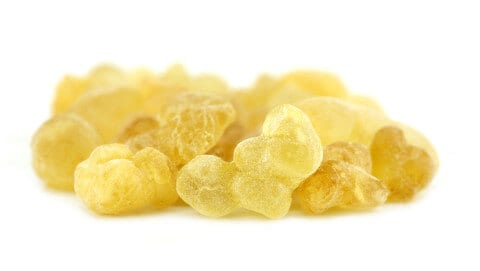
1. Helps Reduce Stress Reactions & Negative Emotions
When inhaled, it has been shown to reduce heart rate and high blood pressure. It has anti-anxiety and depression reducing abilities, but unlike prescription medications it does not have negative side effects and does not cause unwanted drowsiness.
2. Helps Boost Immune System Function and Prevents Illness
Studies have demonstrated that frankincense has immune enhancing abilities which may help destroy dangerous bacteria, viruses, and even cancers. It can be used to prevent germs from forming on the skin, mouth, or in your home too. This is the reason many people choose to use frankincense of naturally relieving oral health problems; the antiseptic qualities of this oil can help prevent gingivitis, bad breath, cavities, toothaches, mouth sores, and other infections from occurring.
3. May Help Fight Cancer, or Deal with Chemotherapy Side Effects
Frankincense oil has been shown in lab research to help fight cells of specific types of cancer. A 2012 lab study even found that a chemical compound found in frankincense called AKBA is successful at killing cancer cells that have become resistant to chemotherapy. However I would suggest doing more research on this before jumping to conclusions.
Read Robert Tisserand’s article “Frankincense Oil and Cancer in Perspective”
4. Astringent, Kills Harmful Germs and Bacteria
Frankincense is an antiseptic and disinfectant. It has the ability to eliminate cold and flu germs from the home and the body naturally and can be used in place of chemical household cleaners.
5. Heals Skin and Prevents Signs of Aging
6. Balances Hormone Levels
Frankincense oil reduces symptoms associated with menstruation and menopause by balancing hormone levels. It can help relieve pain, cramps, constipation, headaches, anxiety, nausea, fatigue, and mood swings. Frankincense oil also helps with regulating estrogen production and reduces the risk of tumor or cyst development in pre-menopausal women.
7. Eases Digestion
Frankincense helps the digestive system to properly detox and to produce bowel movements, reduces pain and cramping in the stomach, can relieve nausea, helps to flush out excess water from the abdomen that can cause bloating, and even relieves PMS-related stomach pains.
It does this by speeding up the secretion of digestive enzymes, increasing urination production, relaxing the muscles of the digestive tract, and also helps to improve circulation which is needed for proper digestive health. It has been shown to be beneficial in reducing symptoms of leaky gut syndrome, chronic colitis, ulcerative colitis, Crohn’s disease, and IBS.
8. Acts as a Sleep Aid
Frankincense essential oil is useful in lowering levels of anxiety or chronic stress that can keep you up at night. It has a calming, grounding scent that can naturally help you to fall asleep. It helps open breathing passages, allows your body to reach an ideal sleeping temperature, and can eliminate pain that keeps you up.
9. Helps Decrease Inflammation and Pain
Frankincense can inhibit the production of key inflammatory molecules associated with conditions like arthritis, asthma, painful bowel disorders like IBS, and many more conditions. It can be useful in helping to prevent the breakdown of the cartilage tissue and has been shown to significantly reduce levels of dangerous and painful inflammation, making it a natural treatment option for pain-related conditions that effect the muscles, joints, and tendons.
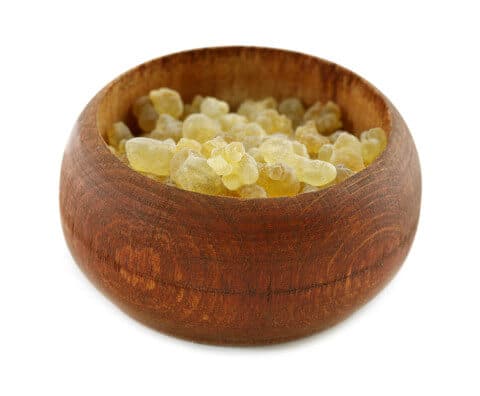
Frankincense Interactions/Side Effects
Frankincense essential oil is extremely well tolerated, especially compared to prescription medications. To date there are no reported serious side effects of using Frankincense oil, as long as you do not ingest large quantities which can result in it becoming toxic.
Rarely frankincense oil can cause certain reactions for some people- including minor skin rashes and digestive problems like nausea or stomach pains. Frankincense seratta is also known to have blood thinning effects, so anyone who has problems related to blood clotting should not use Frankincense seratta oil or speak with a doctor first. Otherwise the oil may have potential to negatively react with certain anticoagulant medications. My son has hemophilia and he has had no problems with any other frankincense species. Hemophilia friendly Frankincense is boswella sacra, ferena and rivae. we do avoid Frankincense boswella seratta.
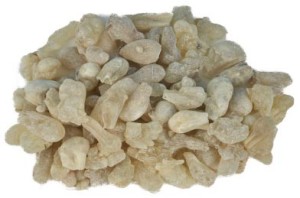
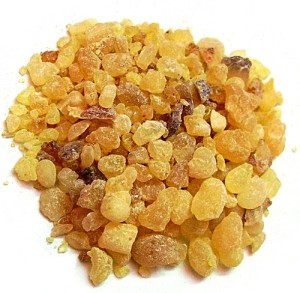
[/vc_column_text][/vc_column][/vc_row]

